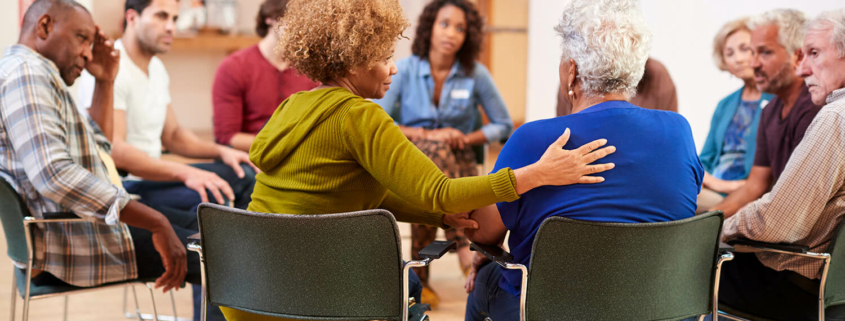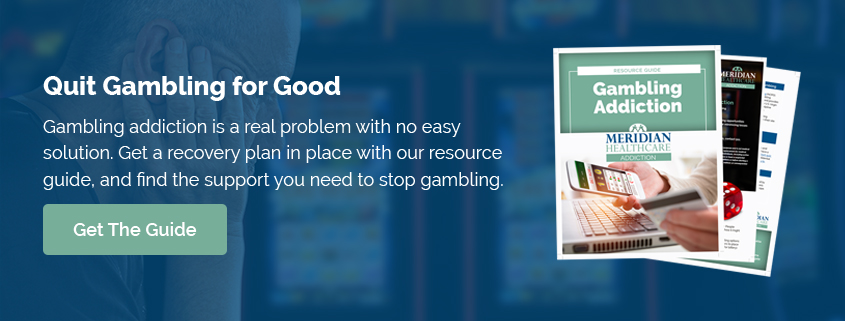Can Treatment for Gambling Addiction Improve My Life?
Gambling addiction, also known as problem gambling or gambling disorder, is a disease that plagues many people’s lives – from finances to physical and mental well-being. Unfortunately, now more than ever before, this risk is ever-present with access to casinos and the growing popularity of online gambling.
Similarly to other forms of addiction, problem gambling can cause changes in brain function, including the release of dopamine, that reinforce the addictive behavior.
But, problem gambling doesn’t have to affect you or your loved ones. Thankfully, there are many resources available that address both compulsive gambling and gambling addiction treatment.
Causes and Signs of Gambling Addiction
While there is no single known cause of compulsive gambling behavior, there are many different theories and beliefs on gambling addiction’s risk factors.
Potential risk factors include biological issues, genetic predispositions, and environmental causes. While not always the case, some compulsive gamblers have been observed to have preexisting mental health struggles, such as depression or bipolar disorder.
Signs of Problem Gambling
-
- Poor impulse control regarding gambling
- Gambling large amounts of money at once
- Secretive behavior or lying about gambling habits
- Sudden financial problems
- Neglecting friends and/or family members in favor of gambling
- Asking others for money
If you or a loved one are exhibiting warning signs, consult with a professional to find out if you should enroll in a treatment program.
Symptoms of Problem Gambling
Not only can the inability to stop gambling lead to negative consequences financially, but there are also numerous other physical, social, and mental side effects.
Personal Life Problems
Problem gamblers experience a negative impact on their financial status. It is very common for those with gambling addiction to continue to bet higher and higher amounts of money, either to feel excitement or to “chase losses” and attempt to recuperate the money they’ve gambled away.
Aside from financial side effects, gambling addicts have a higher risk of developing substance use disorders like nicotine addiction, alcoholism, or even opioid addiction.
These side effects can also lead to strained relationships with friends and relatives, employment problems, and social isolation, among other negative consequences.
Health Risks
You might not realize that gambling addiction can lead to serious physical health conditions, too. The most common concern among problem gamblers is chronic stress, which can also lead to hypertension and cardiovascular issues.
Often, people addicted to gambling develop insomnia, which can add to the already-existing stress issues (or contribute to mental health conditions or personality disorders).
Mental Health Risks
The effects that problem gambling can have on mental health are devastating. Those suffering from gambling addiction have an increased risk of anxiety, depression, and personality disorders — and even have a higher chance of having attention-deficit/hyperactivity disorder (ADHD).
Between the added stress and other psychological effects that gambling addiction can cause, those who suffer from gambling disorder may also begin to develop suicidal ideation.
If you or a loved one have suicidal thoughts, please call the 988 Suicide and Crisis Lifeline. If there is an emergency, call 911.
Gambling Addiction Treatment Options
Thankfully, there are ways to seek help, including a variety of gambling addiction treatment options. If you or someone you know is taking part in dangerous gambling activities, please consult with a healthcare expert and determine a problem gambling treatment plan.
Mental Health Counseling
One common treatment method for gambling addiction is mental health counseling. There are different types of counseling that addiction treatment centers offer such as cognitive behavioral therapy (CBT) or psychotherapy.
Therapy supports the process of gaining more control of emotional well-being and mental health. Counseling from a professional mental health treatment provider is widely recognized for its role in mitigating gambling or other destructive behaviors.
Family Therapy
Gambling addiction doesn’t only affect the individual; it also affects their friends, family, and loved ones. For this reason, family therapy is a treatment option that can help repair strained relationships or address issues that affect the family as a unit.
Medications
In certain cases, medications may be prescribed to relieve problem gamblers of physical symptoms or related mental health conditions.
-
- Antidepressants
- Mood stabilizers
- Opioid antagonists (if substance abuse developed as a result of problem gambling)
Hotlines
There are national hotlines dedicated to helping individuals overcome their gambling addiction. The National Council on Problem Gambling offers the National Problem Gambling Helpline (1-800-GAMBLER), which covers all 50 U.S. states and U.S. territories.
There is also the Substance Abuse and Mental Health Services Administration National Helpline (1-800-622-HELP) available to help those who are struggling with substance abuse disorder.
Support Groups
Official support groups, such as Gamblers Anonymous, and smaller self-help groups can offer great support for those with a gambling addiction. These groups rely on others who have gone through (or are currently going through) the same situation to aid in the healing process.
Find Your Hope at Meridian HealthCare
When someone is struggling with a gambling addiction, finding support and treatment as soon as possible is crucial. Whether you need outpatient services or inpatient care in a treatment facility, help is out there.
At Meridian HealthCare, we are committed to helping those in need with our patient care services, from mental health counseling and addiction treatment to chiropractic and primary care. When you’re ready, so are we.






